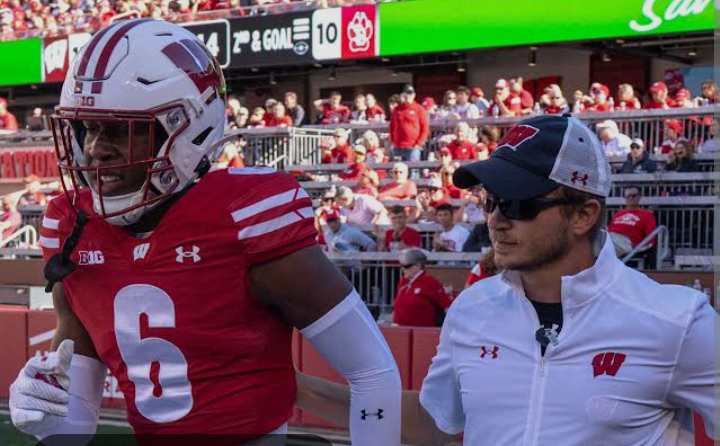Wisconsin defensive back Xavier Lucas is embroiled in a significant legal dispute following his attorney, Darren Heitner, announcing his transfer to Miami. The core issue is whether revenue-sharing agreements with schools are enforceable amidst the forthcoming House v. NCAA lawsuit settlement.
The situation began when Lucas requested to be placed in the transfer portal after just one season at Wisconsin, a request the school denied, asserting that the two-year revenue-sharing agreement he signed on December 2 was binding. He also entered into a separate deal with Wisconsin’s NIL collective.
According to NCAA rules, universities must place athletes into the transfer portal within two business days of a request.
A university official stated, “The agreement between Xavier and Wisconsin Athletics remains active and enforceable. Badger student-athletes signing these agreements expect Wisconsin Athletics to fulfill its commitments, and Wisconsin Athletics relies on the athletes’ promises to do the same. A request to enter the transfer portal after signing such an agreement contradicts the mutual understanding and representations of the agreement, which is why we did not process the transfer request.”
Starting in 2025, schools will be able to establish revenue-sharing contracts with players, allowing them to directly compensate athletes for their contributions. However, these contracts aren’t technically valid until the House settlement is completely approved, with a final hearing set for April 7. Heitner argues that Lucas’s contract is merely a memorandum of understanding and won’t be enforceable until the settlement is finalized.
Lucas claims that after being denied entry into the transfer portal, he unenrolled from Wisconsin, subsequently connecting with Miami and signing with them. Wisconsin allegedly has evidence of tampering by Miami before Lucas entered the portal.
The NCAA clarified to Yahoo Sports that their rules do not prohibit a student-athlete from unenrolling from one institution and enrolling at another immediately.
During his freshman year, Lucas participated in 12 games for Wisconsin, contributing to the end of the team’s streak of 22 consecutive bowl appearances with 18 tackles, two tackles for loss, and an interception. He was rated as the No. 25 player and No. 2 cornerback in the 247Sports Transfer Rankings after a strong start.
As a recruiter, the Fort Lauderdale native was rated as the No. 37 safety in 247Sports rankings. Lucas had a late visit to Miami before committing to Wisconsin.
In response to the situation, the Big Ten Conference expressed its support for Wisconsin, stating, “The Big Ten Conference fully backs the University of Wisconsin regarding the contractual agreement between student-athlete Xavier Lucas and the Wisconsin football program. It’s crucial for agreed obligations to be honored as student-athletes engage in revenue sharing. Allegations of tampering and contract interference by the University of Miami are alarming and undermine the efforts of the ACC as they collaborate with other conferences to develop a sustainable model for college sports.”
Lucas’s situation illustrates the precarious state of college athletics before the House v. NCAA lawsuit is formalized. Schools must strategize for the 2025 revenue-sharing budget while awaiting the lawsuit’s finalization.
Wisconsin appears determined to establish a precedent regarding the enforceability of revenue-sharing agreements, a move that could drastically alter college sports. While Lucas has made a valid argument that his situation wasn’t managed correctly under existing rules, the outcome may need to be clarified in court. The college football landscape is eagerly anticipating the resolution to this issue, whether it comes through legal channels or legislative action, as managing the transfer portal remains a pressing challenge for the future of the sport.
As preparations continue for the House v. NCAA settlement, college athletics programs are currently offering compensation deals, but the uncertainty remains until the lawsuit concludes, leaving many schools uncertain about compliance.
Recently, the Department of Education’s Office for Civil Rights indicated that revenue sharing funds are subject to Title IX regulations, implying that schools must distribute these funds proportionately between male and female athletes. Most institutions have planned to allocate over 80% of revenue share funds to major revenue sports like football and men’s basketball.
